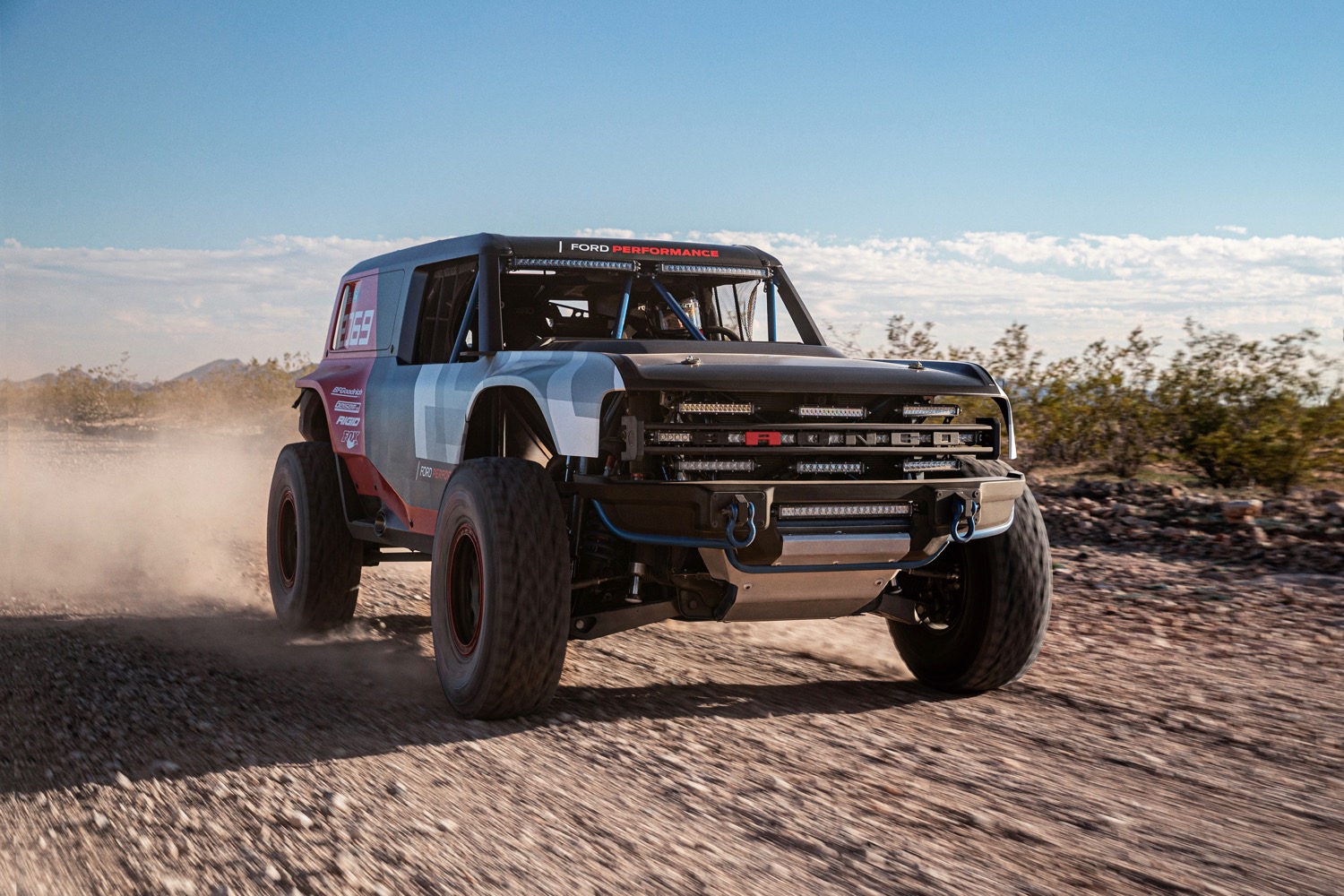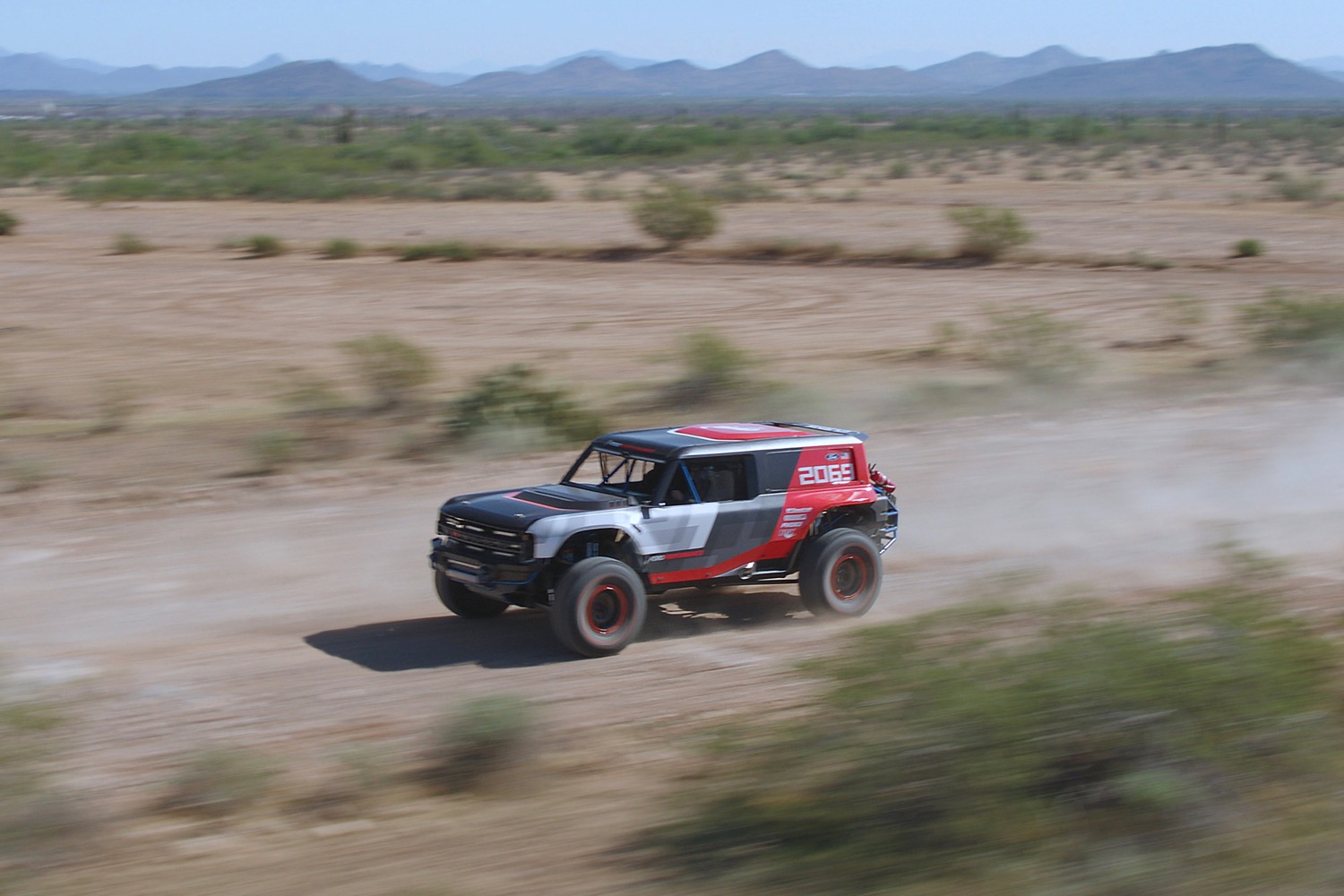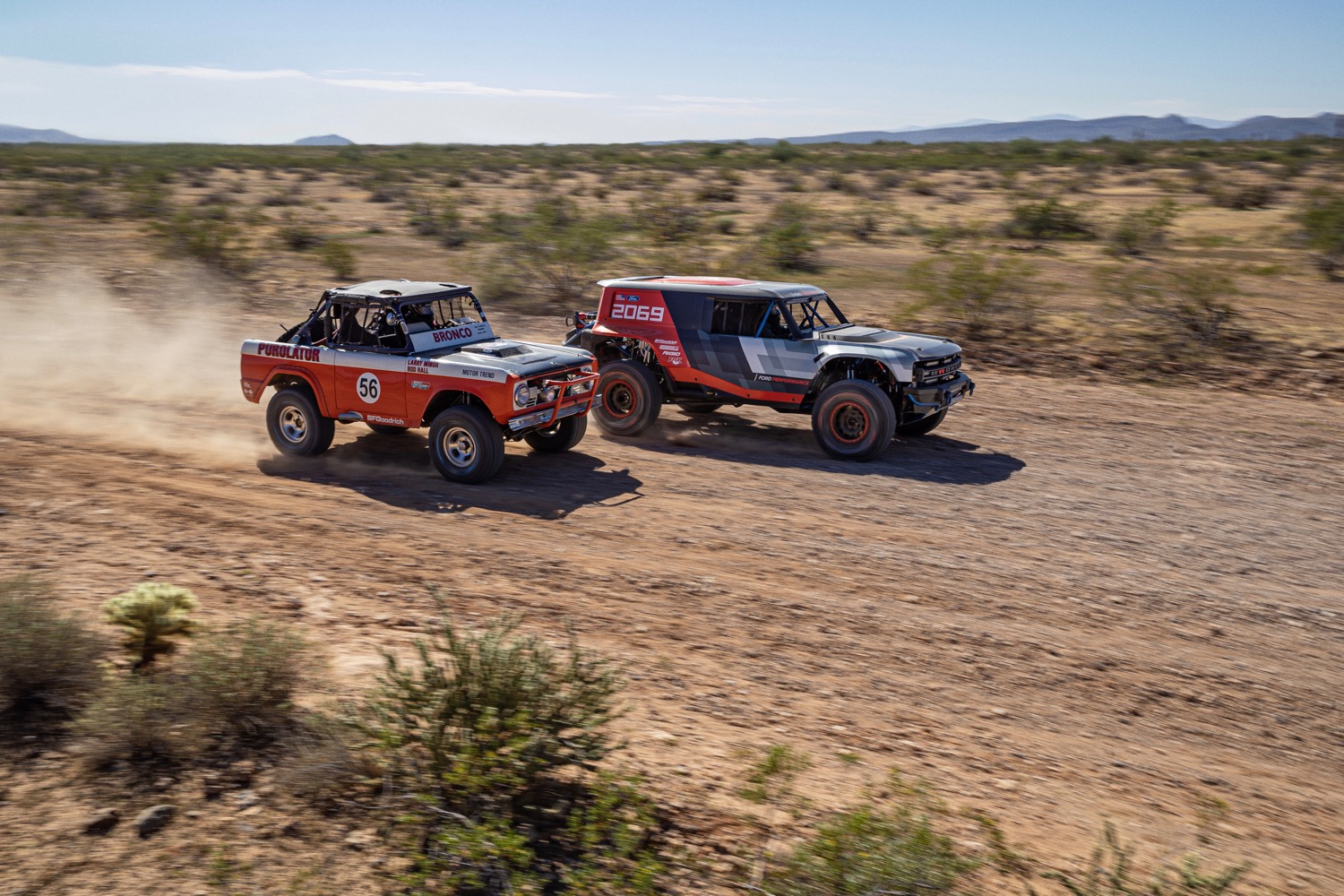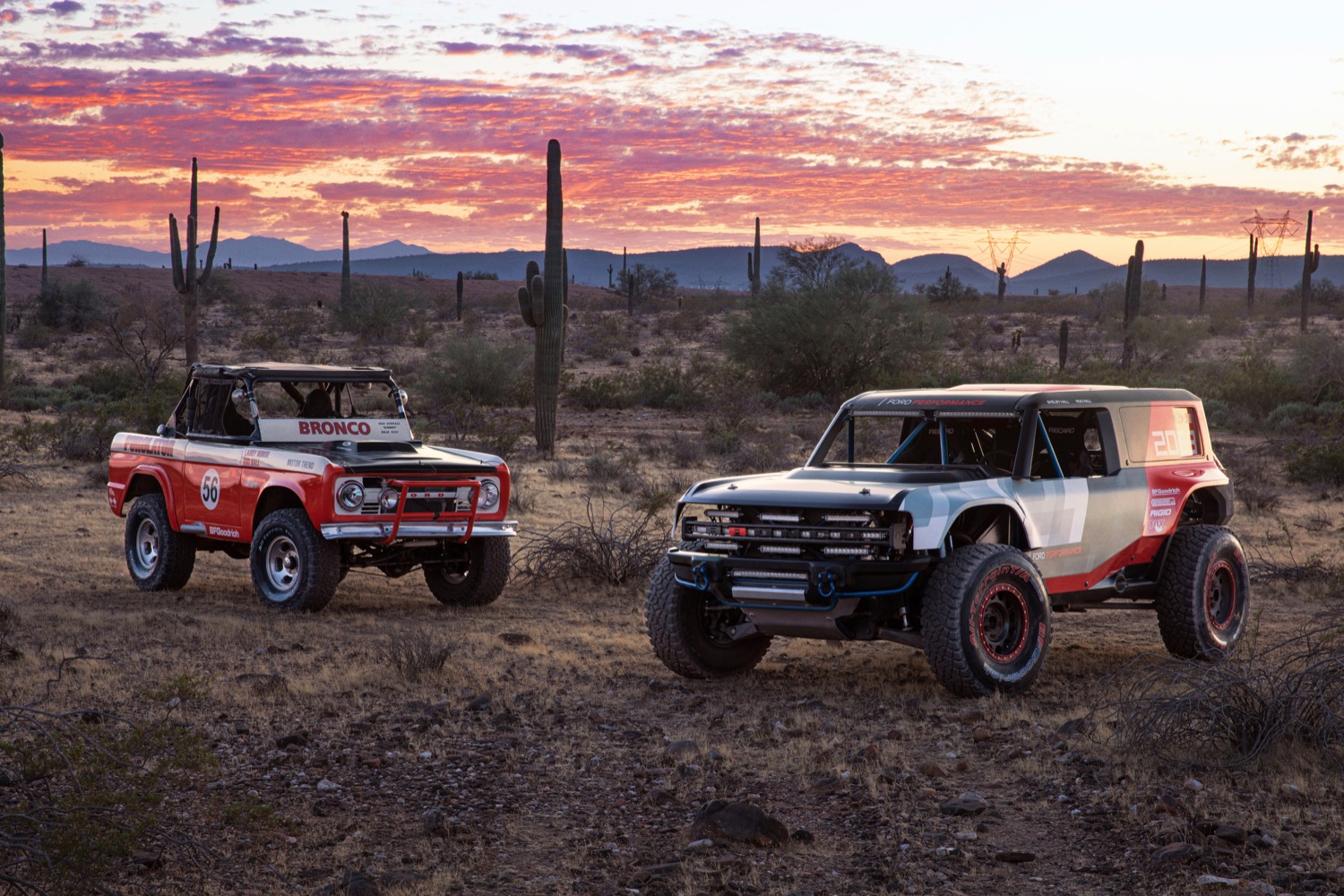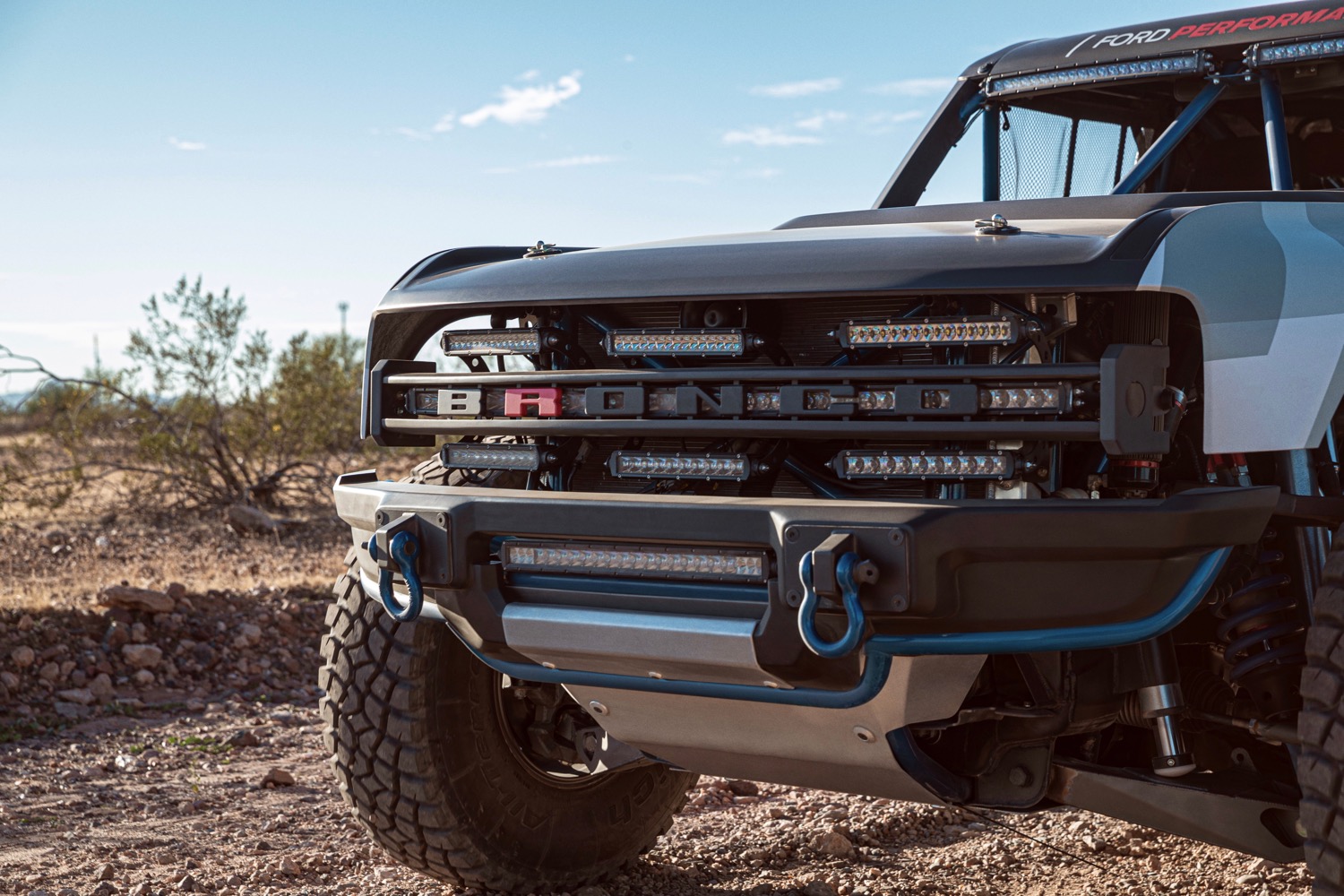Ford is trying to hype the return of its Bronco off-roader as much as possible. The highly anticipated new Ford Bronco will be revealed in spring 2020, but in the meantime, Ford is releasing a racing version of its reborn SUV. The Ford Bronco R is a purpose-built racer that teases the version customers will actually be able to buy.
The Bronco R’s boxy profile resembles the first-generation Bronco, which won North America’s biggest off-road race — the Baja 1000 — in 1969. But the design also hints at the upcoming Bronco production model, according to Ford. That’s a strong indication that the Bronco will adopt a retro design referencing that first-generation model, which was made from 1966 to 1977. Ford continued to update the Bronco, ending production in 1996.
The race truck is based on the same Ford T6 architecture that will be used for the upcoming Bronco production model, and is currently used by the Ford Ranger pickup truck. However, the Bronco R is no ordinary grocery-getter. It features racing-specific independent front suspension with 14 inches of travel, as well as production-based rear suspension modified to allow 18 inches of travel. This allows the wheels to move up and down easily over rough terrain, keeping the truck level and the driver’s spine intact.
The Bronco R also features custom Fox shocks and 17-inch beadlock aluminum wheels. The wheels lock the tires to the rims, so they won’t demount after losing pressure. It’s easy to reinflate a flat tire in the desert, but hard to remount one. The tires themselves are 37-inches in diameter and supplied by BFGoodrich.
The composite body features a clamshell hood and roof, but no doors. The driver and front passenger have to climb in through the window, while the single rear-seat passenger uses a special access hatch. Like all racing vehicles, the interior is stripped of nonessentials. That makes it similar to the original, bare-bones Bronco, and a stark contrast to modern SUVs, which come loaded with convenience features.
Having re-enacted its 1966 Le Mans victory over Ferrari with the GT supercar, Ford hopes to score a win at the Baja 1000 50 years after Rod Hall drove a Bronco to victory in the legendary off-road race in Mexico. To do that, the Bronco R was built in six months. Ford teamed up with specialist firm Geiser Bros Design and Development on the project. The race starts November 22, covering about 1,000 miles of treacherous terrain along Mexico’s Baja California peninsula.
